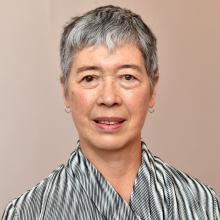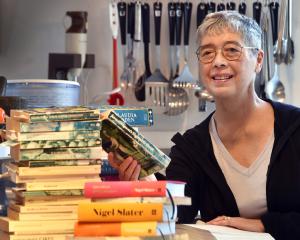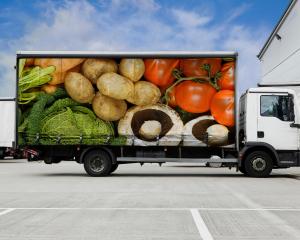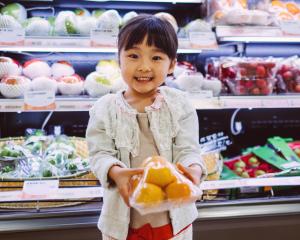

Saturday mornings are hugely busy at Locavore’s workshop near the harbour basin. At 7.30, Rose or one of her part-time workers collects orders from suppliers at the Otago Farmers Market. Other goods have come in on Friday when the lists and packing slips for each box are made up.
It’s hectic as vegetable boxes are packed, bags filled with recipe ingredients and additional orders are sorted and checked.
"Some people order specific things and we often have people who say ‘we’re inundated with courgettes, please no courgettes this week’. Or ‘my kids don’t like green capsicums’ or ‘I’m allergic to tubers’. We take careful notes of those and double-check the boxes before they go out to make sure."
Then the boxes are delivered between lunchtime and 3pm and the previous week’s packaging is picked up.
The Locavore project started about three years ago when Rose’s daughter got her first full-time job and found it took so much time she wanted her vegetables delivered. There were not many options at the time and they had to be shipped from Auckland, Rose said.
"I said ‘I’m sure I could do better than that,’ and that’s how it started."
Then a friend of her daughter’s with food allergies also wanted a box, and as Rose was used to cooking for people with different dietary requirements, she agreed.
She and her former husband had a farm along the harbour and were already supplying friends and family from their large garden. Deciding to turn it into a business, they applied for the Ministry of Social Development’s flexi-wage subsidy which provided a base income, and help with business advice and set-up costs.
"We recognised we were a bit haphazard at growing but there were other people locally who were much more systematic than we were. We’ve established relationships with a bunch of growers which is really lovely. They are small people trying to sell what they grow."
When the first Covid lockdown hit in 2020 they suddenly found themselves with about five times as many customers.
"It was very stressful because we didn’t have the systems in place to to cope with that very sudden change."
The farmers’ market was closed so they drove to Oamaru every week to collect produce from Willowbridge, Brydone Organics and Kakanui, and often had to drive to Roxburgh for fruit as well.
Since then the farm has been sold and Rose manages the business herself with help from her sister and a friend, but has now employed a couple of part-time students.
She is constantly adding products to her offerings, often at the request of customers — coffee from Mazagran, bread from Gilbert’s, Holy Cow milk, Ronia and Pippi’s nut "mylks", honey from a small grower on the Taieri, eggs, sometimes Whitestone cheese, and even avocados and citrus in season from small growers in the North Island.
She also offers a choice of recipes, with meat, vegetarian and vegan selections, with all the ingredients, including things such as quinoa or rice and spices, packed in a separate bag. Another customer request was to make it easier for teenagers to cook, she said with a laugh.
Many of her customers are professionals with young families.
"A lot of them want good healthy food and want to support small local business. Many of the suppliers are organic and they like that. I guess you could say they are people who can afford to have scruples about their food, but I think people on a more restricted budget would still find it was worthwhile, I hope."
A box of vegetables for two for a week is about $70 but some people find that enough for a fortnight.
"You pack a box and then think it doesn’t look like enough food but you know it is because you’ve counted it and thought ‘how many courgettes would I use if I were only cooking for me?Two or three a week at most’. And you want a variety."
One week recently boxes included potatoes, courgettes, carrots, red onions, red and green cabbages, spring onions, pak choi, snowball turnips, pumpkin, corn, basil and a mix of eggplant. tomato, chillies, cucumber, capsicum and some Brussels sprouts.
Because she has to place her orders on a Wednesday but customers’ orders don’t come in until Thursday, she often has leftover inventory so runs a small fruit and vegetable market at Summerset retirement village.
"It’s hugely social, mostly ladies, and they’ll buy one or two tomatoes and a small handful of lettuce and they are very particular about the apple varieties they will buy — and you get all these stories."
But if all that’s not enough, Rose also volunteers to cook once a week at the local night shelter.
"This is madness which I’ve inflicted on myself. On a Saturday I do Locavore and then I do the night shelter, usually with a few hours’ gap between. That means I get Sunday and Monday as a weekend."
Food for the shelter mostly comes from Kiwi Harvest food rescue, and donations.
"It’s been interesting cooking for people who come to the night shelter and thinking about the food we do here and how accessible that is to all sorts of people. I’m trying to introduce lots of secret vegetables. But if takeaways is all you know other food is very strange."
- locavoreboxes.co.nz













